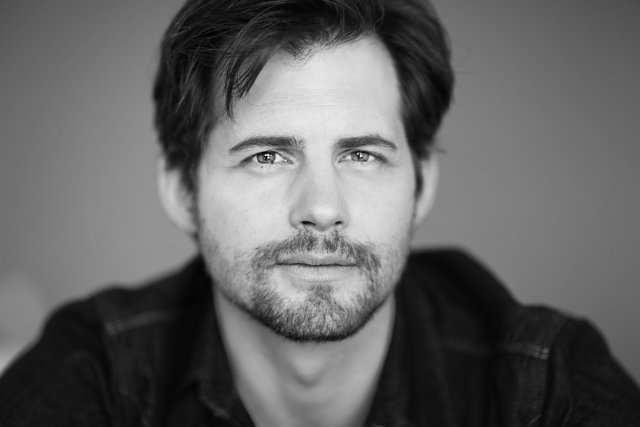
In Their Own Words: Kristoffer Polaha of “Where Hope Grows”
Exciting opportunities continue to flow here at OneFilmFan.com, and this week was no exception. For the newest interview request that was given a resounding “Yes!” from their publicist, and hence the interviewee themselves, this reviewer had the utmost privilege to share a wonderfully detailed, in depth, candid, insightful and just plain fun conversation via phone with actor Kristoffer Polaha, whose most recent indie film effort, “Where Hope Grows”, in theaters now, is more than worth seeing at your earliest possible convenience, readers! A genuine, humble, and very grounded individual, Mr. Polaha shared his valuable time and expounded on the road to acting, the profound impact of character and life themes in “Where Hope Grows” and beyond, and how ultimately, a single film has stuck with him for life to date. And with this, OneFilmFan.com brings you our session.
One Film Fan: Being born in Reno, Nevada, you were already a son of the West, relatively close to Los Angeles from the beginning. What drew you into acting and deciding it was the career path you would aim for?
Kristoffer Polaha: I think what’s very interesting, to start at the very beginning, is that my grandmother was actually born in Pasadena, and her father used to make pool tables, like custom made billiards tables, for Clark Gable. She also told me a story about how Greta Garbo gave her a little doll for Christmas one year and crazy stuff like that! Then her grandfather used to make kit cars for people, custom, one-off cars. Then my grandfather was a man named Eddie Eben, who used to play the organ at the Orpheum Theater! It would rise up out of the floor and he would play with the silent pictures. He also had a radio show called “Midnight Melodies” on CBS Radio, which is a cool, little known fact.
Now, all of this stuff was “washed” away by the time I was born, as there hardly any pictures or stories about it. So when I moved out to Hollywood and started acting, I had my grandmother tell me all of these stories about her childhood, like how she and her girlfriends used to line up outside of Paramount Studios and wait to get cast as extras or background dancers in Esther Williams movies! So I think that’s why when I first told my folks I wanted to be an actor, they weren’t TOO terribly put off by the idea, although they thought it was going to be a passing phase at best! (Laughs)
O.F.F.: How did you further learn the art (ie: mentors, influences, schooling)?
K.P.: I was a freshman in high school, actually a boarding school, called Robert Louis Stevenson, and I wasn’t doing so great, just because it was a hard transition. I was living away from home and missed the comforts of home. I remember the Dean of Students, Mr. Henderson, and I had a chat one day and he said “You need to set some goals ie: grade point average, that kind of thing, and then you need to get involved with something after school.” So, very randomly, I auditioned for a play because it seemed interesting to me, and I tried out for the basketball team. I got cut from the basketball team, but I made the play. So that was kind of the beginning of the end!
I started acting in high school, and it very quickly became the identifier for me, something I excelled in and identified with. I became the star of all the high school plays and, being that it was at a boarding school, you have a very well-endowed Arts program. We did four, fully produced plays per year to an audience of five hundred! And we did six shows, which would all sell out, as they would sell it to the whole peninsula. Therefore, you would have all these people from Carmel and Pebble Beach coming in to see these kids act! Every show was a full house, and that’s a lot of people to be performing in front of as a kid. So I knew pretty quickly that acting was what I wanted to do, pursued it doggedly, then went to NYU.
And I think the biggest mentor who got the ball rolling for me was Hamish Tyler, who was the high school drama coach, as he was just really serious about it. He took his job seriously, wanted to create beautiful productions that were professional. Actually, a few summers before I started going to high school, he had gone to this Yale summer program for directing teachers, how to be better teacher directors. So he was all fired up and had all these great new techniques. It was like going to acting school. So everything I learned at NYU I learned at Stevenson first, and they just put different labels on it, you know, they created different language for the same stuff I had already learned. And when I got to NYU, we weren’t allowed to act as freshman, and I couldn’t abide that. So I found a company called The Playwrights Theater, where the artistic director was a man named Stephen Kennedy Murphy, and he cast me as the young Eugene O’Neill!
So I just started doing O’Neill plays from freshman year on, and that’s actually how I got my break. The summer between my junior and senior year in college, I did a play called “Bread & Butter”, which was the first full length play that Eugene O’Neill wrote. It had never been produced, so Stephen Kennedy Murphy produced it at the MacDougal Playhouse, which was the same theater that O’Neill had debuted “Bound East For Cardiff” in 1916! So we were literally on the same stage, the same boards, that Eugene O’Neill did that! It was a real cool moment in my life! The New York Times came, the Wall Street Journal came, and I got some nice notices in the papers. So agents and managers in New York took notice, I got representation, and I just started auditioning for stuff and it started to work out.
O.F.F.: You’ve made your name primarily via Television, with major roles in “North Shore”, “Life Unexpected”, and “Ringer”. What have your experiences been like in TV vs. the film roles that have come into the mx? Similar? Completely different?
K.P.: Well, I think the work is the same, as you need to strive for the same level of excellence in both mediums. You just have a lot less time to discover things in television than film. But it’s interesting, as I was very aware of each character as I was shaping them in my head. I remember not knowing what the median was and what it entailed on “North Shore”, and wanting to create this character, but not really having the tools or experience to do that. Television is long form. So, week after week, you’re having to revive this character unless he’s just “you”, behaving like you would in real life, which to me was never fun, because there’s no fun in that, it’s not acting, really! More like reality TV with someone else speaking for me! So with “North Shore” I kind of ran adrift, kind of “beached” myself (to use a metaphor, wink, wink), because I just didn’t have the tools to create an interesting and compelling character. I was trying to infuse “Jason Matthews” as sort of this earnest, good guy, regular guy, but it was boring I felt, personally, and thought he dried up.
So then, I was like, “Let’s try something totally different.” I did this thing where I was Cupid, the god of erotic love, in a show called “Valentine”. I decided to go as far outside of the box as I could, and ended up having a great time on a show that otherwise would have been pretty silly. And I think we, as a cast collectively, along with the writer, decided to elevate the material that we’d all inherited. The show was something from MRC that they’d bought 13 episodes for, which was an unusual experiment for television, as they rented Sunday nights on The CW. It was one of those bizarre things, but it taught me freedom, boldness, and how to trust myself, get way outside the box, and go for it. From then on, I kind of understood television, which is you have to come up with a very clear idea of what you want to do week after week and then the writers are going to adjust that character so it becomes like a suit, tailor-made for you as the series goes. Whereas in a movie, the whole thing is there, from beginning to middle to end, you know that it’s finite. Plus, you have four weeks to do it, so you have all this time to luxuriate in all the choices you’re going to make, and you get to sit with it beforehand a little longer, a rehearsal process. Then on set, you’re allowed to take your time a bit more.
But, I love both. I love television because of its pace. It’s fast, you can tell stories, and it’s a “find out you have a job, within two weeks you’re filming it, and then six weeks later it’s on air” kind of thing. With movies, there’s a lot longer incubation period, like we filmed “Where Hope Grows” in 2013, and it’s just now hitting theaters. So, Calvin Campbell (Polaha’s character in the film) was alive in me years ago. And a character never really dies until they’re birthed into the world, you know what I mean? So finally I can let him go, because it’s weird in that you hold onto a character until the process is complete. The process we’re doing is shared with an audience and it’s their response that finishes the process.
O.F.F.: Ok! Onto your current project, “Where Hope Grows”, currently in limited theatrical release. What drew you to this film?
K.P.: Honestly, it was the script. I read it and it was something that sort of harkened to a script I’d written called “The Biggest Little City” about two brothers. One had Fetal Alcohol Syndrome while the other one is suicidal and wants to jump off the roof, but before he does, he wants to set his brother up with the winnings of a jackpot. So there were a lot of themes in it I was trying to explore and tap into, and when I read Chris’ (McDowell, “Grows” director) script, frankly, he told the story better! (Laughs) And I was like, “Oh, I don’t need to tell my story, I can just do this one and can put in all my energy.” So in a weird way, I had been working on this movie in my own mind since 2004! And that’s the first time I’ve said that! I’ve done these interviews a lot, so you’re getting this information I haven’t said yet! (to which this reviewer responded “Wow, there you go!”) We got “Breaking News!” here, Kirk! (Laughs)
I started working on my script in 2004, and I was really thinking about who his character was. When I read Chris’ script, the work had been incubating, settling into me for about a decade prior, so it was an easy go to, an offer that came, that I readily accepted and jumped at the opportunity based solely on this character, Calvin Campbell’s, journey because it was so dark. While it’s not implicitly written in the script that he’s going to commit suicide, and I told Chris this early on, I was going to play this and underneath the character’s secret is that as soon as his daughter turns eighteen, he’s going to drink himself to death, he’s done, he’s hanging it up, just getting her through to legal age and then he’s out. And Chris was like “I love that, man.” So there was a real depth I wanted to take it to.
O.F.F.: For those who have yet to see the film, tell us in your own words about the character, Calvin Campbell, you play in it.
K.P.: Sure. Calvin Campbell is sort of the town hero gone wrong. He was a major league baseball player and a great batter, he could hit a ball over the fence. But he gets to the majors and he chokes, he just can’t swing the bat. So he ends up out of the majors and slowly begins burying his pain by consuming alcohol, just drinks it away. Meanwhile he has this little baby girl, and we never meet her Mom. The director Chris Dowling and I said, “Well, where IS the Mom?” Is she around? Is she gone?” He’s like “You know what, I left it out intentionally because if she’s dead, that’s one thing, but if she left, that’s quite another thing, being abandoned by a woman and then being a child and having your Mom leave you. That creates a whole other set of scars. I almost like leaving it where we don’t know so people can add and color that in on their own.”
But one of the things I added was when the mother left, early on, leaving just the baby girl and me (my character), it made that part of why he couldn’t hack it, as he’s going from city to city and toting this little baby with him, and he just can’t do both. He can’t be a new Dad and a major league player. So this weird guilt and resentment is embedded in their relationship as because of her, he couldn’t fulfill his dreams, and so he’s thwarted on both sides, as because of her, he’s also still alive. So it’s this interesting thing as he’s staying alive longer than he would have thanks to her while not being able to do what he wanted to either. So it’s this deeply personal, interwoven stuff. Which is the stuff I love! That’s Chekov and O’Neill right there! What’s unspoken, what’s not on the page, right?
O.F.F.: Was it at all hard to find that place emotionally in playing a very flawed, conflicted character who does ultimately find redemption?
K.P.: Yeah, I don’t know what it is about me as a human, but that’s a sweet spot for me. I don’t know why I like playing losers. I almost find it easier to play a loser than the guy who’s supposed to be this heroic, stoic guy. Like, I played John Galt in “Atlas Shrugged 3” recently, and I was reading the script, looking at it, and was like “Here’s this guy who’s supposed to basically be the libertarian version of Jesus.” How do you portray this? Jesus allowed himself to be humble, and here’s a guy who has to be like Superman. So I watched a lot of Robert Redford films, you know, as that becomes the strong, silent type, less is more.
So it’s almost not as fun as playing someone who doesn’t have to prescribe to anything. He’s a loser! And because he’s a loser, he doesn’t care. If he does something that’s “off”, he doesn’t care. If he does something that’s heroic, he doesn’t care, because he’s stopped doing so. There’s something interesting and liberating about those kinds of characters. But, I also like decent guys, like if he was a total jerk with no redemptive qualities about him, then I also think as a person I would have had any compassion for him. The idea that he was going to this dark place but at the same time be able to listen to Produce (DeSanctis’ character) and want to hear what he had to say. That, to me, was complete.
O.F.F.: There are a lot of truly powerful messages in the film—faith, hope, dealing with prejudice, anger, our own flaws, and the need for the help of others, even when we don’t WANT to ask for it. How did the themes in this story impact you personally?
K.P.: I’ve always had a real compassion for people in general, almost an extreme empathy, in particular for people with disabilities. I remember I was living in New York City and I was going to have my head shaved for this character I was playing. And I bounded out of the barbershop, which is this really cool place, I forget the name of it, the really cool one on Broadway and Cooper’s Square. But, I had a shaved head, I was a rock and rolls, in NYU, a college kid, and there was this dad and he was walking up with his son who had Down’s syndrome. This little boy was nine years old, and I remember seeing this little kid’s face, and literally it made me well up in tears because I felt such compassion for the father, who had all of these hopes for his son, and then for this little boy who was different. Understanding what Down’s syndrome is, to know that there’s an acknowledgement of the difference, but there’s not a, you know what I mean, there’s never a “sorry for you” because of the difference, but there is an awareness that “I look different than you look.” And I just remember being in that moment, being really heartbroken.
And as I’ve grown, and understood life as I know it and my faith as I understand it, that if you do believe in a God, well then you ask yourself “Well, God, why do You allow these things to happen?” For me, the revelation was there’s something wrong, if you want to call it “wrong”, with all of us, something special about all of us. And whether that’s an emotional thing or a psychological thing, or some dark secret thing that happened when you’re in your life, whatever that is, we’re all a little bit broken, a little bit special needs. So maybe the answer is that God puts on the outside of some people what we all carry on the inside, and that our job as humans is just to treat each other with as much dignity and respect. Meet us where we are, you know? I’ll meet you where you are, you meet me where I am. And that then becomes a whole thing that is anti-discriminatory against everything-religion, race, creed, sexual preference, like no matter what you do, you have to start treating people with dignity because there’s life.
So when you start making a film like this, it becomes a really interesting prospect because you’re sitting in a movie theater, and you’re being asked these questions, witnessing something that’s far more compelling than special effects, you know? We can all go see dinosaurs in the movie theater but you can’t often see these moments in life that make you question who you are as a person, and question your integrity, question your character. This is a character film and I am so proud to be part of it. So that’s what I learned from it.
O.F.F.: Specifically now, in regard to David DeSanctis (INCREDIBLE performance! And the outtakes after the film say a lot in themselves about him, and his character, as a person), how was it working with him?
K.P.: I didn’t know David DeSanctis (Produce in “Grows”) before, but getting to know David since, was such a treat to be able to experience. (It was) a really pure experience for David and his family. It’s his first film, his first job like this as an actor, and I’m almost experiencing this like the first time and it’s very refreshing. I’d never worked with or had experience with someone with Down’s syndrome, so to get to know David really did shatter stereotypes. He had his lines memorized, and he’s funny, and he can bust your chops because he has a great sense of humor. He’s a really great person, he’s equal on every level, and he has Down’s syndrome. That’s his thing that’s “added”. So there’s that.
O.F.F.: How was it working alongside the supporting actors like William Zabka, Brooke Burns, Kerr Smith, and Danica McKellar?
K.P.: Well, it was pretty amazing! I gotta be really honest with you, I made a phone call, cause our budget was low, a small little budget for this film, you know, and so as a result you can’t span the breadths and depths of Hollywood. So I called up two of my friends, Brooke Burns and Kerr Smith. You’ll remember Kerr was from “Life Unexpected” and Brooke Burns and I had done two shows together, “North Shore” and “Miss Guided”. So I said “Guys, I know there’s not a lot of meat here, there’s not a lot of runway, but will you come to Kentucky and play?” They read the script, they responded to it, and they were both like “Heck yeah we’ll come out and play!” So that was awesome to be able to have them come, to be reunited with them, and share that experience with them. Kerr and I were great buddies from “Life Unexpected”, so that was especially a treat as you can go and drink whiskey with your friend! And then Brooke is so awesome and vivacious, and her spirit on the set is always an added plus. So having her was incredible, because, you know, she’s Brooke Burns! She’s beautiful, funny, and great!
And then getting to know Danica, who was, like, every guys’ crush from “The Wonder Years”! I mean that was a mind-blowing thing! What’s crazier is that she looks exactly the same! And she’s really smart! She’s got these books, “Math For Girls”, and she’s encouraging young ladies to get into mathematics and it’s such an amazing cause! There’s a lot of social conditioning that women steer clear of programming, mathematics, and all that stuff and Silicon Valley is always telling how few women are there, and so she’s taking a step in sort of changing that. So she’s really cool! And then, of course, Billy Zabka! Oh my gosh! I mean, here’s the dude who swept the legs of Daniel (as Johnny in 1984’s classic film, “The Karate Kid”)! Huge, huge movie! And he’s awesome! He and Brooke Burns are dear friends from long ago, so it was a real camaraderie.
And there was this crazy thing–we stayed at The Galt House, speaking of John Galt (laughs), in Louisville, Kentucky, this huge hotel, and it has two towers on both sides of the street and then to bridge the towers, there’s this giant walkway, which they made look like a giant aquarium! Big glass ceilings, there’s a bar in there. So after the day, we’d all go and hang out, very much like a family. And then the younger kids on the film, McKaley Miller and Michael Grant, were just wonderful to work with! I play mandolin and he plays piano, a thousand times better than I play the mandolin, but we wrote this song together, like this kind of country, mandolin-infused rock song thing! And then McKaley and her mom Chris were my next door neighbors, and we would hang out, and we’re actually still really close. We just did a short for a friend of mine who’s graduated from AFI and this was his thesis film, called “Front Man”. It ended up being really amazing, but even moreso because McKaley and I have all this natural chemistry and history now together, so we were able to go and continue on. I think you’re going to see big things from her.
I’m like a lucky charm for young Hollywood actresses! If I play your Dad, then it’s almost like you’re guaranteed (success). I mean, Brittany Robertson is now in “Tomorrowland” and I was her Dad on “Life Unexpected”! So I feel like it’s good luck for them! (Laughs) I’ve had good luck playing cool girls’ Dads on TV and in movies!
O.F.F.: Inspirational and/or positively-themed films like this really do need to be more in number, as there so often seems to be an overabundance of more negative-toned offerings out there….agree or disagree?
K.P.: I agree one hundred percent. I mean, I’m not going to bad mouth other films, but it’s interesting for the sake of conversation. We went to see “Mad Max” in the theater the other day while we were in Fresno. There’s a group there called Break The Barriers and they did a presentation, it’s really wonderful, in the middle of Fresno, which you know, I didn’t know what was going on in Fresno. I showed up, there’s a group there that does gymnastics for kids with disabilities. They have kids in wheelchairs, kids without limbs, blind, deaf. And they mixed it with kids who are able bodied and did this amazing show! It made me cry! It was unbelievable to see people who have what we call disabilities have just as much ability if not more in certain cases and to see their heart, and just how amazing it was. So, right before this started, we had a two-hour window, so David and I took in a film, “Mad Max”.
Now, (George) Miller did an amazing job visually, it is one of the most stimulating films I’ve seen in a long time. But, there was nothing in the heart of the movie. I know it was supposed to be about hope, in the film anyway, Charlize Theron’s character says it’s about redemption and hope, literally. But there’s so much emptiness behind all of the visual stimulation and I was sitting there watching it going “This is about nothing. Just nothing.” And I feel like so many of the movies we make are about nothing. They’re visually stimulating and awesome to watch, but then what do you take away from it? I know for me, and this is not me as an actor, but me as an audience member, that there are movies I go to where I literally feel almost physically sick when I leave. I feel emptied out, you know, raw, like I’ve just been exposed to something toxic, I feel bad.
Now there are other movies that have given me inspiration and hope. I remember watching “Chariots of Fire” when I was a little boy, and it changed my life! Seeing “JFK” with my Mom and Dad and I remember the conversations that struck up in the fact that here was a movie flying in the face of history and caused all this controversy and real doubt. And so it was interesting to me because my dad was a defense attorney and his job was to create doubt in the minds of the jury. And the movie had done that for people, you know? We’re so convinced JFK was killed by a lone gunman then all of the sudden it was like “Was he??” I realized there was power in cinema.
So I know that there’s movies out there that have amazing messages and I think that’s the difference. Like you said, I do wish there were more movies that were inspirational or like ‘Where Hope Grows”. And the other reason is that I feel like if you were to review this (“Grows”) not as a faith film but as just a movie, it would stand alone in the sense that it’s just a good film with good acting. And it’s a film you could enjoy regardless of your stance on whether or not there’s a God in the sky or what you believe—if you like movies, go see it and you’re going to like it! And I’ve seen some very jaded people see the film and tell me “Yeah…it got me! I liked it!”
O.F.F.: What other projects are on the horizon or are you presently involved in?
K.P.: I am currently taking a hiatus. We just finished “Backstrom” on Fox, we did thirteen episodes of that, and unfortunately we did not get renewed. So that show’s cancelled, which kind of put all my plans on hold. Yeah, so I’m just doing a little Spring cleaning and just kind of reassessing things. But I’m about to make another attack on the industry in a minute! So, yeah!
O.F.F.: Independent film is so often where, I feel, REAL, DEEP, character-driven storytelling is found, like “Where Hope Grows”, and I think it needs to be promoted SO much more than it is. As an actor, would you say you’d find yourself more taken with smaller films as opposed to the $100 million epic Hollywood fare?
K.P.: I mean, I’m not going to lie to you, man, I’d love the hundred million dollar blockbuster. And I wish that “Where Hope Grows” was a twenty or forty million dollar blockbuster. I really am so proud of the work in there on all levels, you know? Ashamedly so, I guess, I am proud of myself! (Laughs) Like, I’m proud of it! I’m proud of the work, I’m really proud of David DeSanctis. I’m really proud of Chris Dowling and McKaley Miller. I’m proud of Kerr, like, I watch his work. I mean, he’s fantastic, he has two scenes and steals them! He’s great in it. I’ve never seen Brooke, sort of really drop down, she’s just so real. She plays it so well, what her character has gone through. And of course Billy! I mean there’s a scene there in the end, you know, it’s just beautiful work and I want people to see it. So, I wish this were a film that was in more markets so more people could go and see it. And that’s the thing, there’s a bit of responsibility. As artists we do things, and then the other end of the contract is that the audience has to show up and reciprocate by viewing the thing the artist makes.
It’s difficult when make something like this and you’re up against a show like “Mad Max”. I mean it’s printed, it’s out there, a hundred million dollars in print and advertising for that movie, so it’s going to be on every billboard and they’re going to talk about it on the shows, the talk shows, and have opportunities to go to Jimmy Fallon and spread the word and people are going to know to go. Then it’s going to be on three thousand seven hundred screens compared to our two hundred seventy-six. We’re beating the pack on a very minor scale comparatively. So the marketplace is very important.
So if your audience is reading this, they can go to www.wherehopegrowsmovie.com, you can find a theater in your area, and even if it’s in a town over, you gotta go see it if you want to support stuff like this because if it’s not supported in the marketplace, then people are reticent to make it, like “Well, nobody will see it.” And that’s not fun or cool. We did do well last week, for being in two hundred seventy-six theaters, as we were the number one film in limited release for the week and fifth in gross per capita among all other films. So it is performing, but it needs to keep performing and then have people talk about it.
O.F.F.: With out traditional ending, what is YOUR favorite film of all time? Why?
K.P.: (Laughs) Favorite film of all time and why. You know it’s funny, I remember seeing “Pulp Fiction” and being so inspired and being like “Man! I can do that! I can do movies like that!” It put the power in my hands. I also remember seeing “L.A. Story” from Steve Martin when I was even younger and being like there was something very magical, and there was a fantasy quality to real life, about imagination, and normal, mundane things turning into these beautiful, sort of orgasmic visions and I was like “That is amazing!” But, I think, the film that got it all started, and I mentioned it already. My parents, when I was a little boy, and I was born in ‘77, so you can do the math, as I think it came out in ’81, was “Chariots of Fire”.
I remember we went to the downtown cinemas in Reno, Nevada on the Truckee River, and I remember what side of the theater we were sitting, we were on the left hand side of the screen. And there was something about the whole thing: it’s the music, it’s the message, it’s the idea that you’re living a race, your life is a race. But it’s not against others, it’s sort of a race for yourself and the message that I loved was that he said “I feel God’s pleasure when I run.” It was sort of this idea that we’re all given some kind of purpose in life, I believe, and when we fulfill that purpose there’s a Divine pleasure that’s taken. To me that was always a very gratifying sort of belief, and in my life feel like I’ve felt God’s pleasure when I do what He’s given me to do. So that film has obviously resonated, and I’ve taken that message with me for, well, I’m 38, so many, many decades now.
And that’s what I mean, when there’s an amazing message in a movie it can stick, it’s as great as a great book, a great song, or a great word from somebody. I really do feel in life we can, and take this out of religious context, I don’t know if I want a blessing from God, but, like, people have the power to either bless you with their words or curse you with their words. And I feel like our art does that with ideas. Music can bless us or curse us, movies can bless us or curse us, books can bless us or curse us, and it’s just nice to be a part of something that is a blessing to humanity, to each other. You see it and you feel encouraged, fresh, and to me I think that’s the greatest thing I can do with what I have.
OneFilmFan.com once again extends a huge “Thank You!!” to Kristoffer Polaha for this wonderful experience and perspective provided. You can “Follow” Kristoffer on Twitter by going here and PLEASE go to the film’s website as mentioned above to find a theater near you that’s playing this fantastic indie effort! Until next time, thank you for reading!
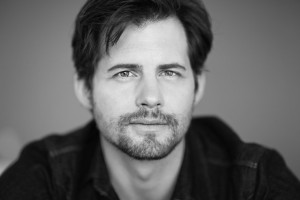
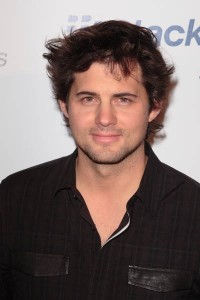
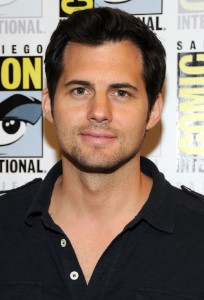
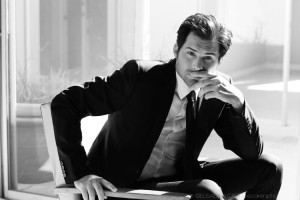
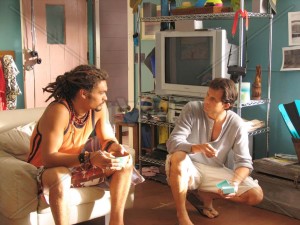
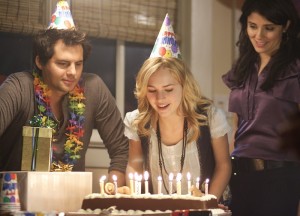
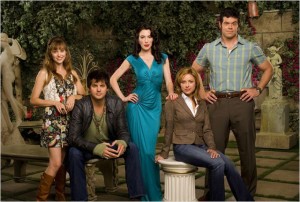
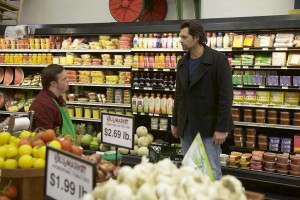
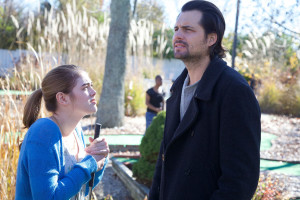
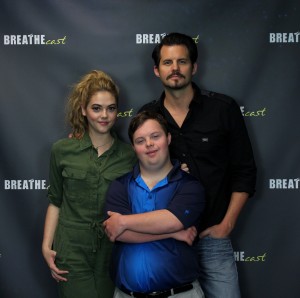
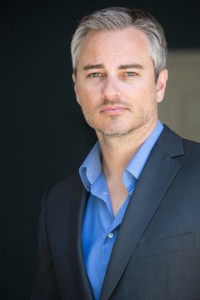
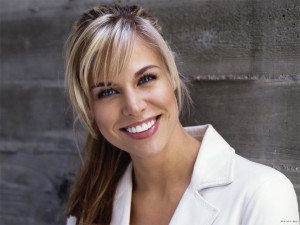
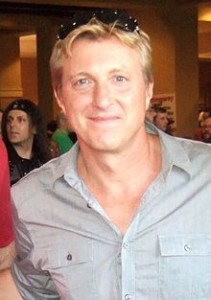

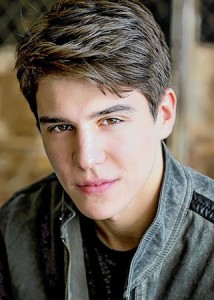
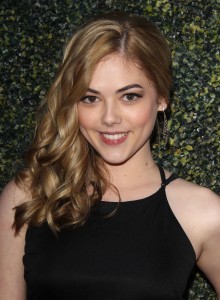
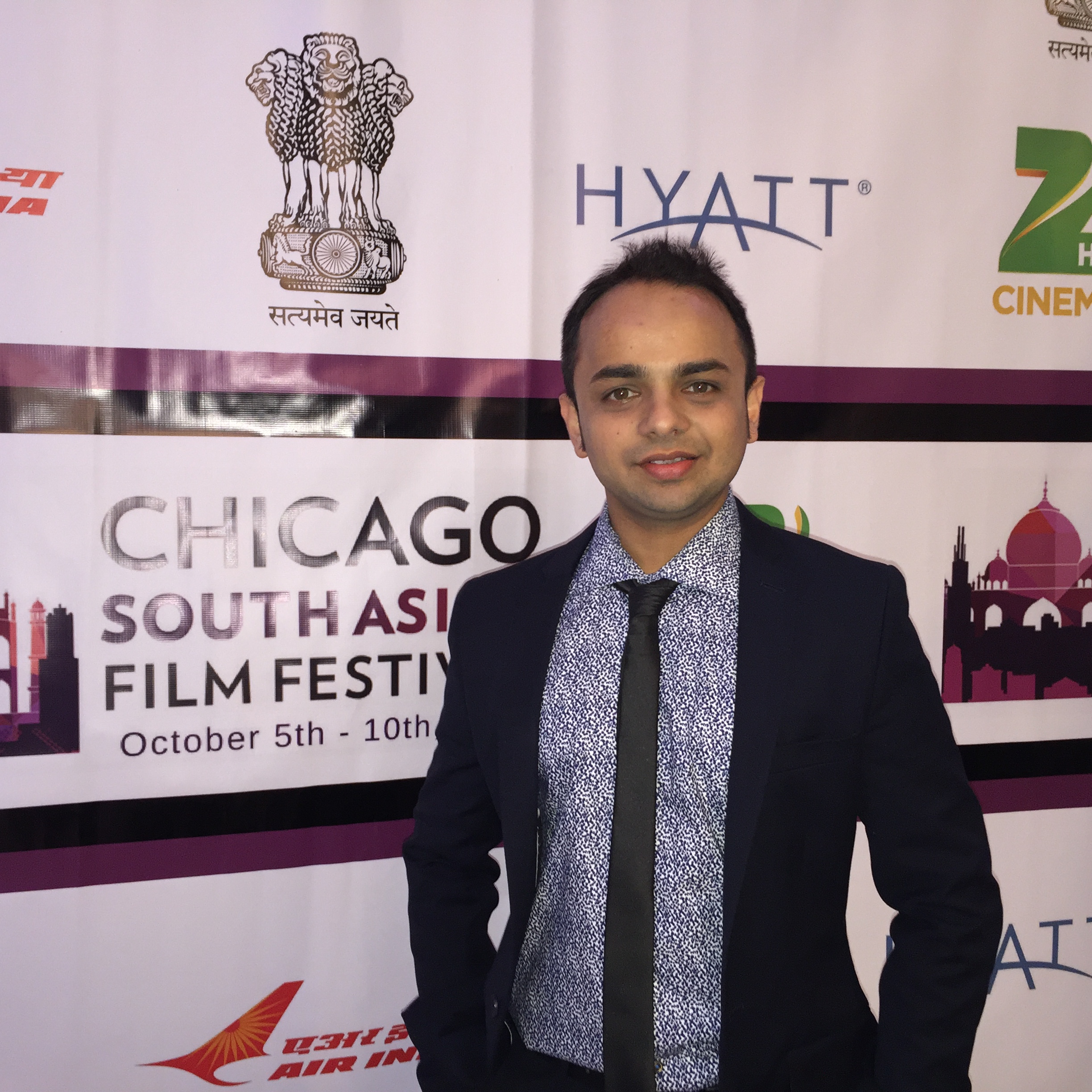
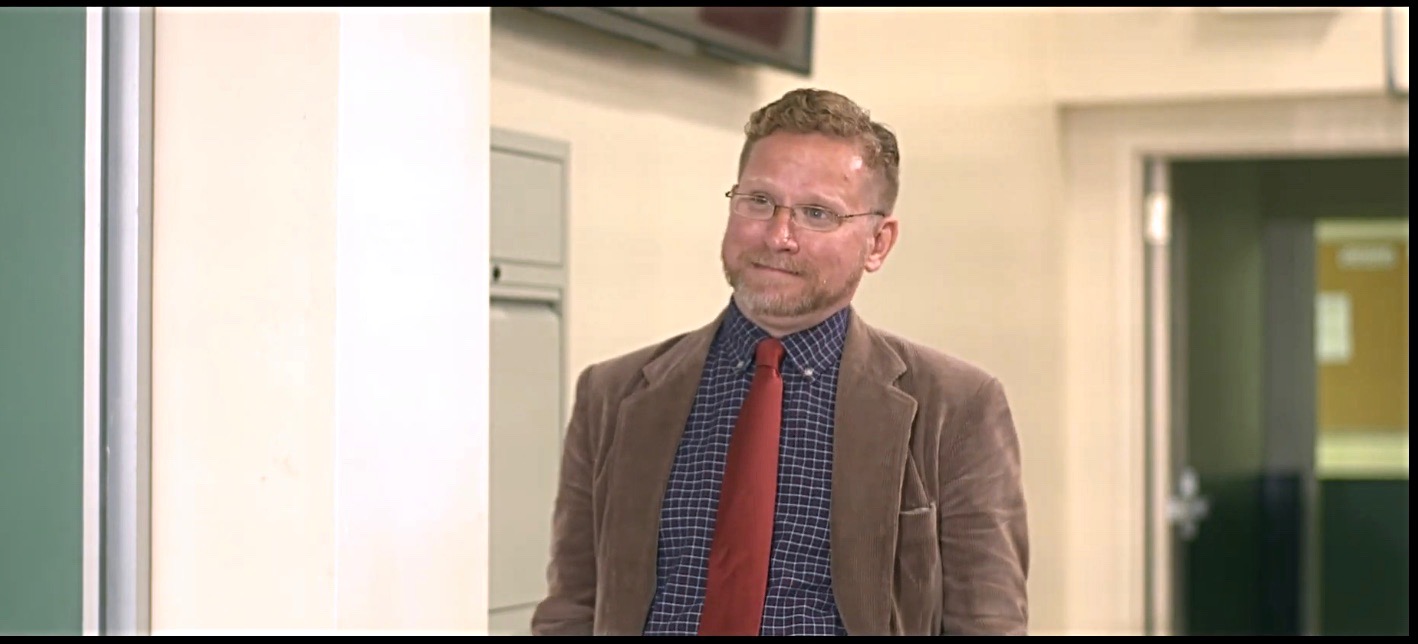
I see your site needs some fresh & unique articles.
Writing manually is time consuming, but there is solution for this.
Just search for – Masquro’s strategies
Permalink
Permalink